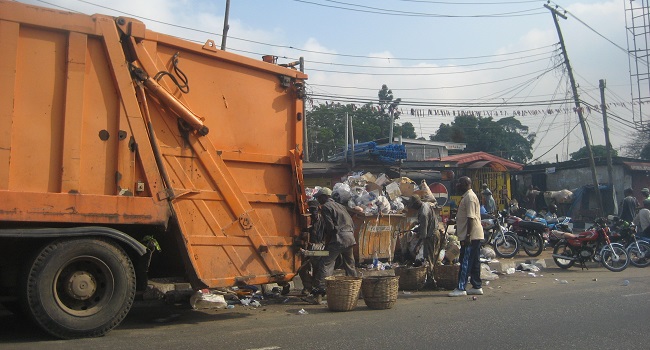
An activist, Akor Janet, has charged Lagos residents to take concrete actions towards ensuring a cleaner and healthier environment.
According to the 28-year-old, who is a convener of the Clean Community Campaign (CCC), population growth has continued to outstrip infrastructure supply, leading to poor access to clean water and sanitary education.
“The population of Lagos is growing ten times faster than that of New York and Los Angeles,” she said, according to a statement. “Nigeria’s most densely populated city has almost 25 million people and is adding about 600,000 every year.
READ ALSO: Flash Floods Kill At Least 18 In Afghanistan
“As with many cities in developing countries, many residents lack an adequate water supply and sanitation: both fundamental human rights essential for the health of all people.
“Poor access to improved water and sanitation in Nigeria remains a major contributing factor to high morbidity and mortality rates among children under five.”
She noted that the use of contaminated drinking water and poor sanitary conditions result in increased vulnerability to water-borne diseases, including diarrhea which leads to the deaths of more than 70,000 children under five annually.
“Nigeria is already experiencing the effects of climate change,” Akor said. “There are variable and extreme weather events: increased temperatures, variable precipitation, floods, droughts, desertification, land degradation, and loss of biodiversity.
“These changing weather patterns are already disrupting livelihoods, leading to even deeper impoverishment and conflicts over the dwindling resources.”




